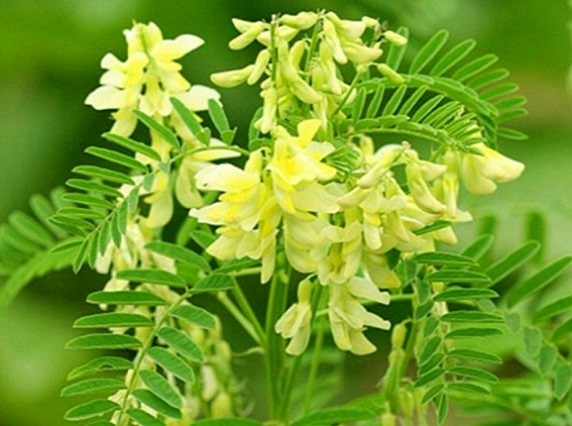Nikhil Prasad Fact checked by:Thailand Medical New Team Jan 19, 2025 2 months, 3 weeks, 4 days, 1 hour, 22 minutes ago
Medical News: A Traditional Remedy for a Modern Challenge
Stroke continues to pose a significant health challenge globally, with over 12 million new cases reported annually. Among these, ischemic strokes account for the majority, affecting 62.4% of patients. The advent of the COVID-19 Era has also seen an exponential rise in stroke incidences as many studies have now confirmed that SARS-CoV-2 causes the onset of strokes irrespective of asymptomatic, mild moderate or severe infections and the same goes for the mRNA COVID-19 vaccines.
 Astragalus Mongholicus Efficacy in Stroke Recovery
Astragalus Mongholicus Efficacy in Stroke Recovery
These events often result in long-term disabilities, including motor and cognitive impairments, creating a pressing need for effective treatments.
While conventional therapies like tissue plasminogen activator (tPA) are available, their utility is limited by a narrow therapeutic window and potential side effects, such as bleeding complications. In this landscape, traditional herbal remedies like Astragalus mongholicus (AM) are drawing increasing attention for their potential to aid in stroke recovery.
The Focus of the Study
Researchers from Gachon University (Incheon and Seongnam-si, Republic of Korea) and Dongguk University (Ilsan, Republic of Korea) have turned their focus to Astragalus mongholicus, a well-established herb in East Asian medicine. AM is widely recognized for its anti-inflammatory, antioxidant, and neuroprotective properties. This
Medical News report delves into their study, which evaluates the neuroprotective efficacy of Astragalus mongholicus in ischemic stroke models, using both in vivo and in vitro approaches. Their findings hold promise for stroke patients seeking natural, adjunctive therapies.
Methods: A Comprehensive Examination
-In Vitro Insights
The team utilized NS-1 mouse neuroblastoma cells subjected to oxygen-glucose deprivation (OGD) to mimic ischemic conditions. Post-OGD treatment with varying doses of Astragalus mongholicus extract demonstrated a dose-dependent improvement in cell viability, attributed to its ability to reduce harmful reactive oxygen species (ROS). This vital finding reinforces the herb’s antioxidant potential.
-Animal Models
Male ICR mice were used to explore the effects of Astragalus mongholicus in photothrombotic (PTB)-induced and transient middle cerebral artery occlusion (tMCAO) stroke models. These experiments assessed the herb’s ability to reduce infarct size, mitigate gliosis (a marker of neuroinflammation), and improve neurological deficits.
Short-term (2 days) and long-term (27 days) Astragalus mongholicus treatments were administered orally, with results meticulously measured using various tools, including magnetic resonance imaging (MRI), magnetic resonance spectroscopy (MRS), and histological analyses.
Key Findings
-Reduction in Brain Damage
The study found that
mice treated with Astragalus mongholicus showed a remarkable reduction in infarct size. In the tMCAO model, infarction volume decreased by approximately 42.72% in the AM-treated group compared to controls. MRI and TTC staining confirmed these findings, highlighting the herb’s potential in minimizing acute brain injury.
-Enhanced Neurological Recovery
Neurological recovery was assessed through modified neurological severity scores (mNSS), which evaluate motor, sensory, and balance functions. Astragalus mongholicus-treated mice displayed significantly lower mNSS scores, indicating improved recovery. Additionally, motor coordination and cognitive functions were assessed using rotarod and novel object recognition (NOR) tests, respectively. Astragalus mongholicus-treated mice outperformed their untreated counterparts in both tests, demonstrating the herb’s potential in restoring motor and cognitive abilities.
-Boost in Neuroprotective Metabolites
Magnetic resonance spectroscopy revealed elevated levels of neuroprotective metabolites, including:
-Inositol (Ins)
-Glycerophosphocholine + Phosphocholine (GPc+PCh)
-N-acetylaspartate + N-acetylaspartylglutamate (NAA+NAAG)
-Creatine + Phosphocreatine (Cr+PCr)
-Glutamine + Glutamate (Glx)
These metabolites play crucial roles in maintaining neuronal integrity and energy metabolism, further underscoring AM’s therapeutic potential.
-Reduction in Gliosis and Oxidative Stress
Astragalus mongholicus treatment reduced markers of neuroinflammation, such as GFAP (astrocyte activation) and Iba1 (microglia activation), in the brain’s penumbra region. Furthermore, Western blot analyses demonstrated reduced levels of pro-inflammatory cytokines like TNF-α and oxidative stress markers such as inducible nitric oxide synthase (iNOS).
Mechanisms Underlying the Neuroprotective Effects
The bioactive compounds in Astragalus mongholicus, including formononetin, triterpene saponins, and polysaccharides, likely contribute to its neuroprotective effects. Formononetin, in particular, has been shown to target inflammatory pathways, reduce oxidative stress, and prevent apoptotic cell death. By modulating these mechanisms, Astragalus mongholicus enhances neuronal survival and supports functional recovery.
Conclusions: A Promising Natural Solution
The findings from this study strongly support the neuroprotective efficacy of Astragalus mongholicus in ischemic stroke recovery. By reducing brain damage, enhancing neurological recovery, and mitigating inflammation and oxidative stress, Astragalus mongholicus offers a multi-faceted approach to stroke treatment. Unlike conventional therapies with narrow applications and significant side effects, Astragalus mongholicus presents a stable and safe alternative, especially for long-term recovery.
Looking forward, more extensive clinical trials will be essential to validate these preclinical findings and establish standardized protocols for Astragalus mongholicus usage in human stroke patients. With its rich history in traditional medicine and growing scientific evidence, Astragalus mongholicus holds immense potential to bridge the gap between conventional and alternative stroke treatments.
The study findings were published in the peer-reviewed journal: Cells.
https://www.mdpi.com/2073-4409/14/2/117
For the latest on Stroke treatments, keep on logging to Thailand
Medical News.
Read Also:
https://www.thailandmedical.news/news/breaking-study-finds-that-covid-19-increases-risk-of-stroke-by-eight-times-compared-to-influenza
https://www.thailandmedical.news/news/breaking-strokes-and-covid-19-researchers-warn-emerging-high-rates-of-unexplained-strokes-linked-to-covid-19
https://www.thailandmedical.news/news/strokes-and-covid-19-study-by-university-of-alabama-shows-that-stroke-victims-with-covid-19-have-increased-inflammation,-severity-and-death
https://www.thailandmedical.news/news/neurology-and-strokes-growing-incidences-of-strokes-related-to-covid-19-leads-to-proper-clinical-guidance-published
https://www.thailandmedical.news/news/must-read-strokes-study-shows-covid-19-increases-risk-of-strokes-in-healthy-young-individuals--global-increase-in-stroke-deaths-last-few-months
